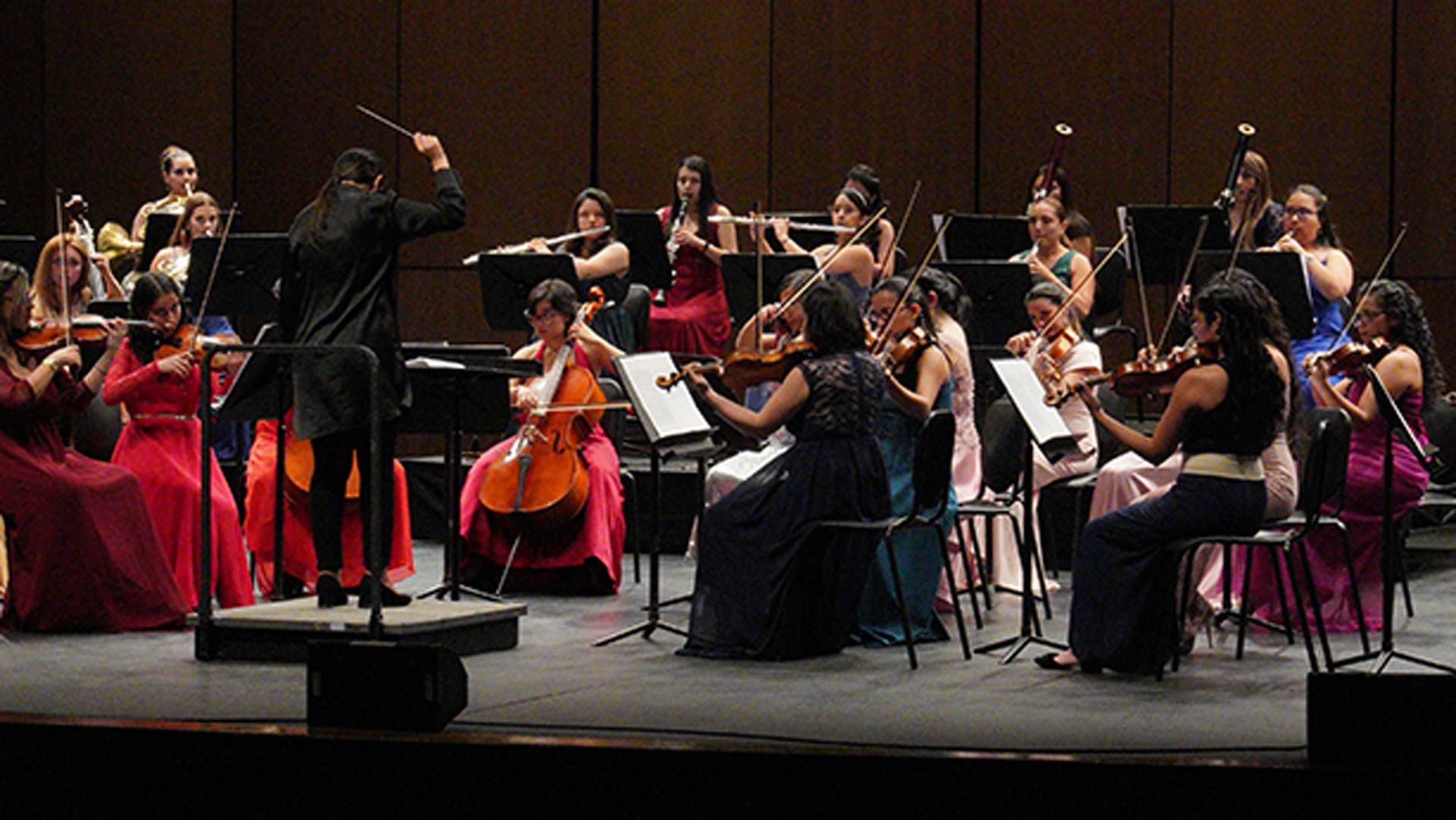Colombia’s first all-female orchestra sets the stage for women to take the lead in classical music
During a recent rehearsal at the Bogotá Philharmonic Orchestra’s headquarters, more than 40 musicians practiced a piece by Louise Farrenc, a 19th century female composer.
Conductor Paola Avila, 29, who studied with renowned orchestra director Marin Alsop, led the vibrant orchestra comprised of bassoons, french horns, violins and trumpets.
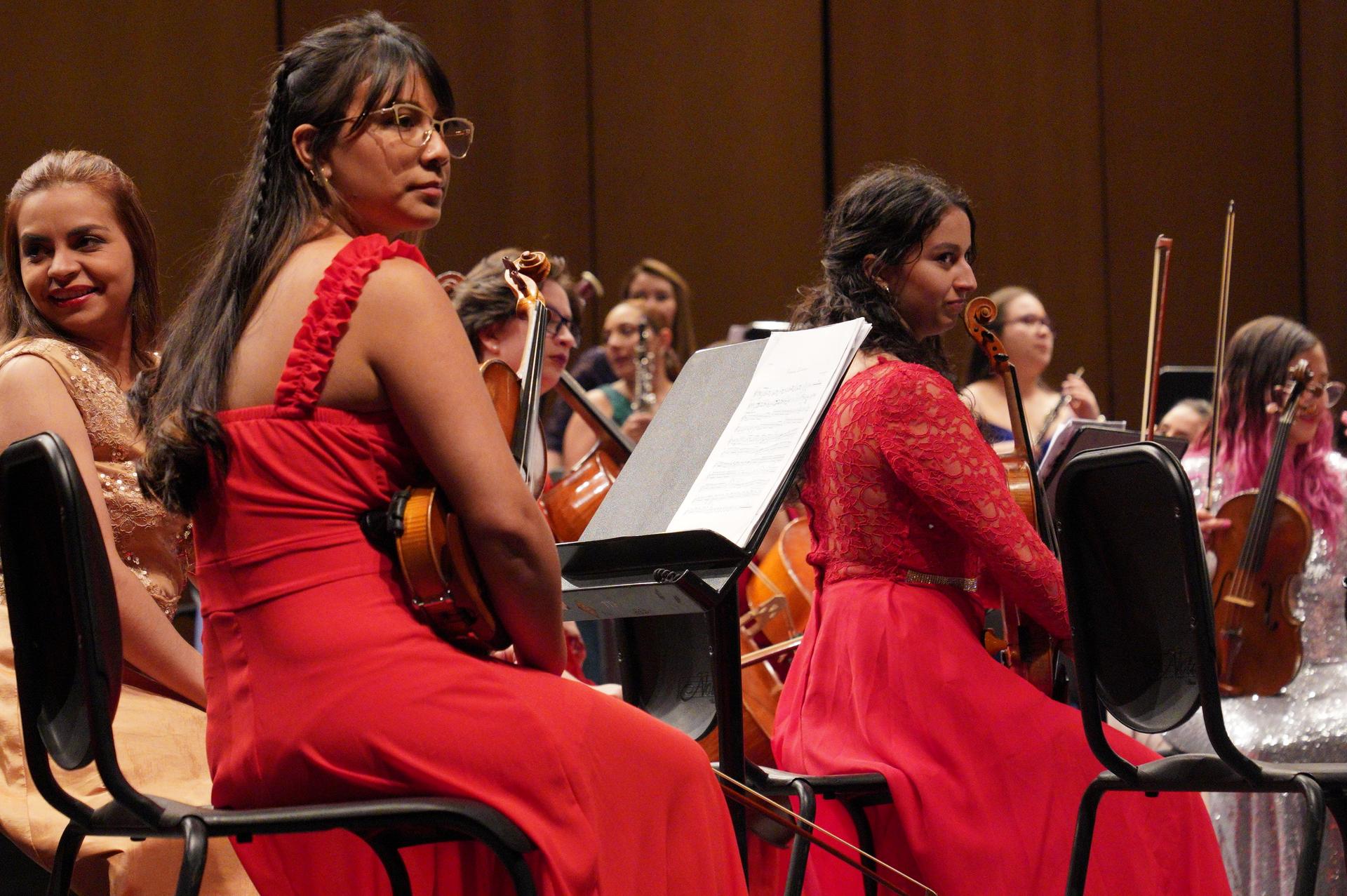
The all-women’s orchestra was launched earlier this year as part of an effort to decrease gender disparities in Colombia’s classical music scene. It highlights the contributions of women and offers a place where younger generations can develop their talent once they have graduated from conservatories.
“None of the professional orchestras in Colombia have more than 30% of women in their artistic personnel.”
“None of the professional orchestras in Colombia have more than 30% of women in their artistic personnel,” Avila said. “And we want to give all the women who really deserve it, the chance to be on stage, playing and conducting.”
Related: The Kyiv Symphony Orchestra fights on the war’s ‘cultural front’
Gender disparities are still very common in classical music orchestras across the world.
In Austria — the land of Mozart — the Vienna Philharmonic only began to accept women as full members in the late 1990s.
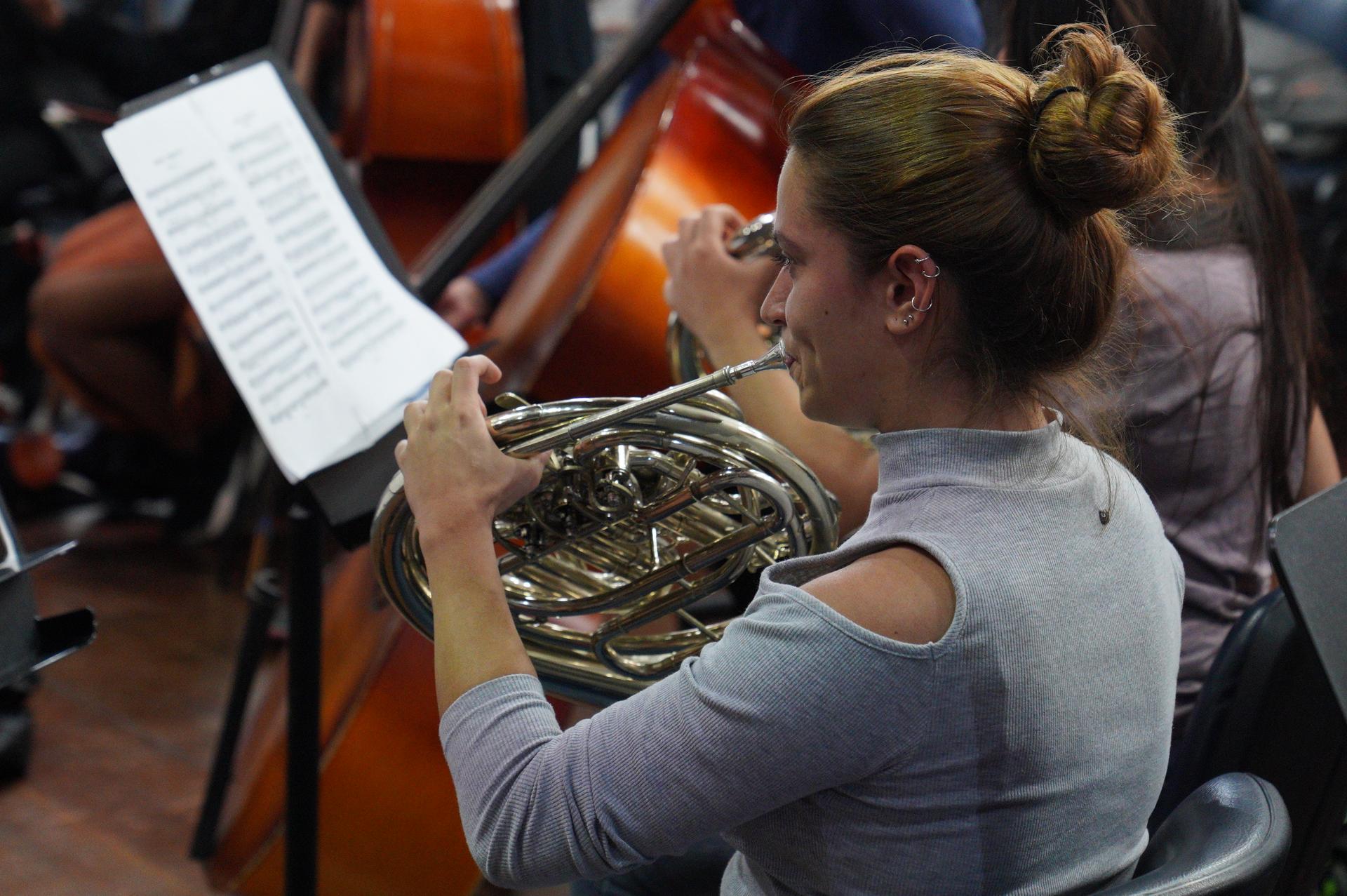
And in the United States, female conductors are rarely hired to lead the nation’s top orchestras. In fact, only 15% of all orchestra conductors in the country are women, according to a survey conducted by the League of American Orchestras in 2016, the latest year for which stats are available.
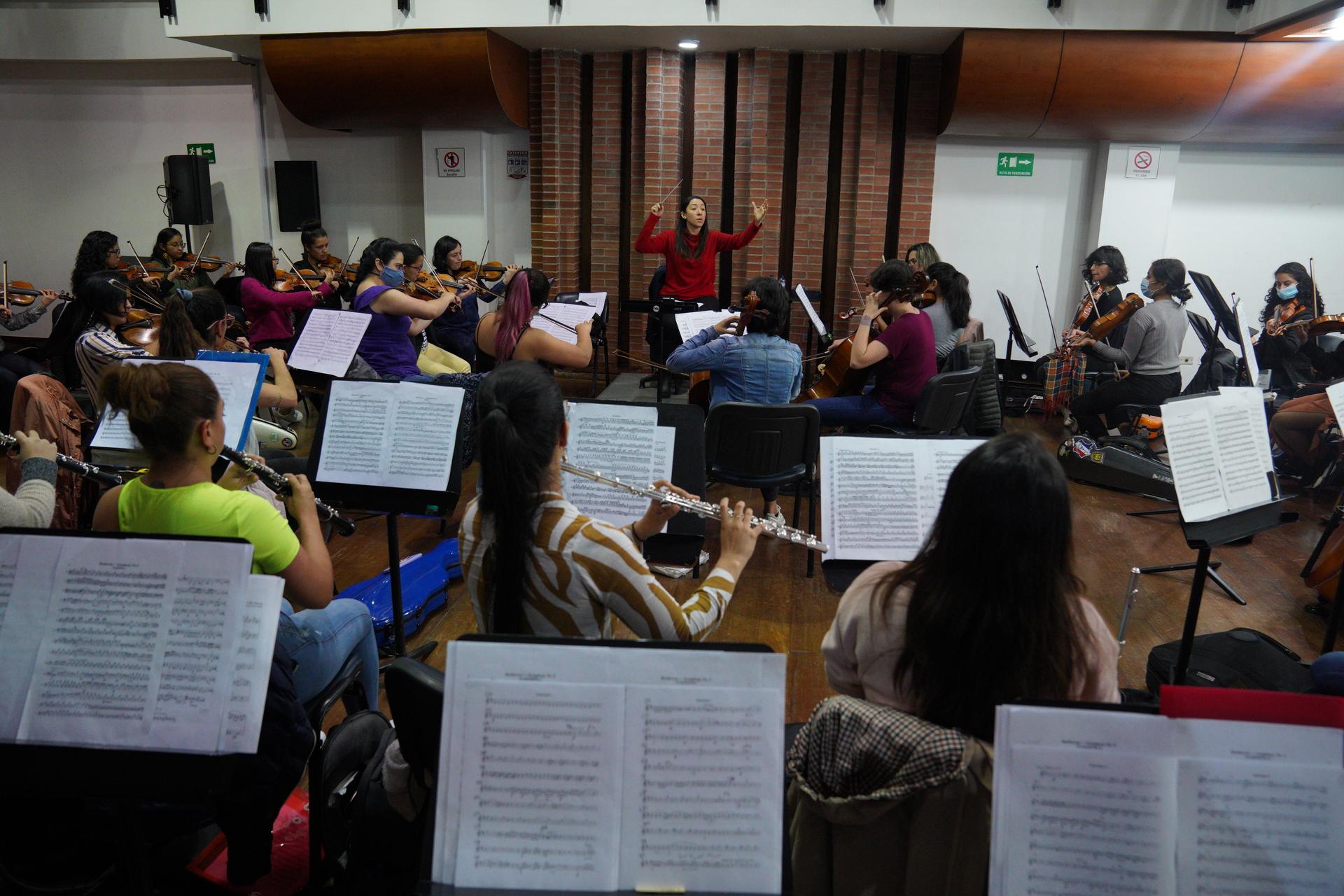
Colombia only has a handful of women conducting professional orchestras. And Avila said it’s because in previous decades, women lacked opportunities to lead orchestras as guest conductors.
In an attempt to change this, younger generations are now gaining the experience required to direct professional orchestras.
Related: TikTok fame allows Colombian band Monsieur Periné to do its own thing
“I think this comes from a very long journey of injustice for us.” she added. “We didn’t have the chance to be a conductor until 10 years or 20 years ago, to receive [that] education, like real education.”
Trumpet player Jenny Garzon leads the orchestra’s brass section. She said that the lack of female conductors also said something about Colombian society.
“The problem is that we’ve become used to only seeing men in leadership roles, whether it’s in government or at a company.”
“The problem is that we’ve become used to only seeing men in leadership roles,” she said. “Whether it’s in government or at a company. But projects like this are a first step to changing that.”
The city government, led by Claudia Lopez — Bogotá’s first-ever female mayor — finances the all-female orchestra.
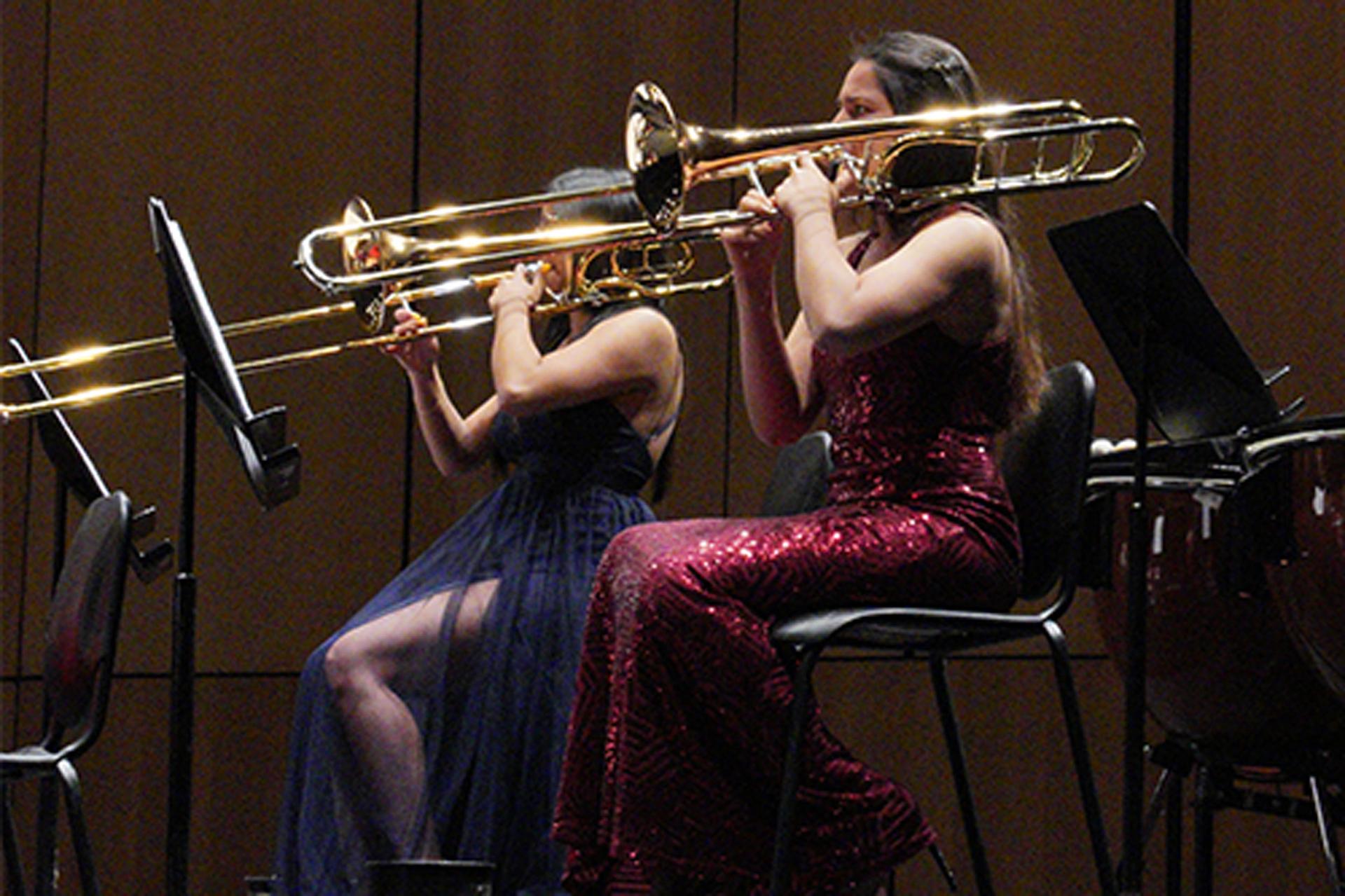
And the orchestra, which plays a couple of shows every month, tries to include works by female composers in each presentation.
Related: Former FARC rebels reimagine peace with this new cultural gathering space in Colombia
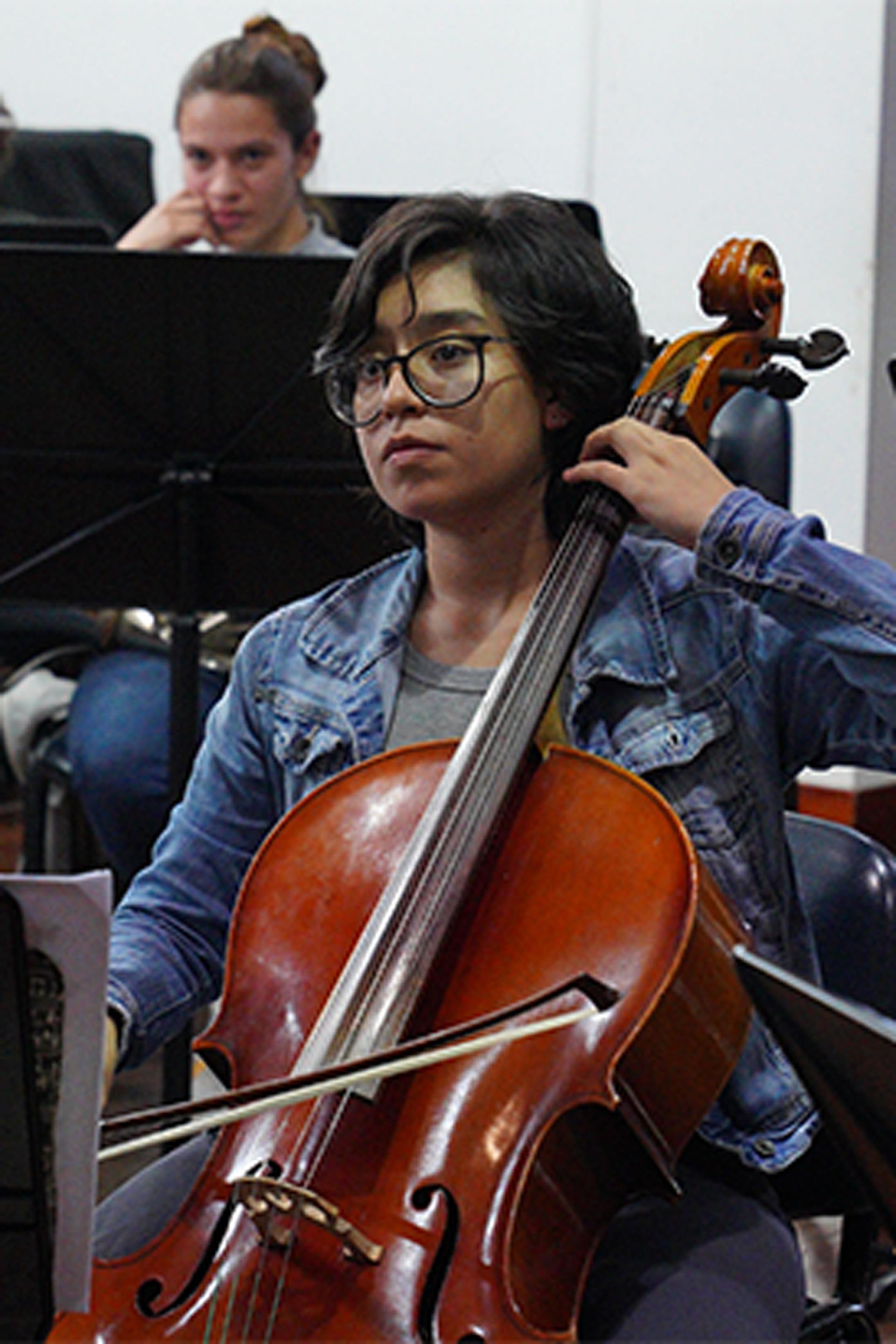
Conductor Paola Avila said that it can be challenging to find music from female composers.
To save money, the orchestra mostly plays pieces from authors who have been deceased for decades, making their music now free to use.
But in the past, there were few publishing houses that edited manuscripts written by women.
“We don’t have access to edited parts the same way that we have for Mozart or for Beethoven,” because female composers weren’t played enough, Avila explained.
“We need to be very lucky that some editor did that job.”
Still, Avila is confident that the orchestra will make an impact and show young girls that they can be whatever they want to be.
“In the end, we are artists, too,” Avila said.
“We have, in that sense, the same possibilities as men.”
The all-women’s orchestra is already integrating new generations into its ranks, like Sara Catalina Alvarez, an 18-year-old cello player, who is still finishing her studies at a university in Bogotá.
Earlier this year, she passed the orchestra’s blind auditions, in which the performer’s identity is concealed from the judges to prevent bias.
“I feel very lucky to be here,” Alvarez said.
“I always wanted to be part of the philharmonic, and this is a great first step.”
The story you just read is accessible and free to all because thousands of listeners and readers contribute to our nonprofit newsroom. We go deep to bring you the human-centered international reporting that you know you can trust. To do this work and to do it well, we rely on the support of our listeners. If you appreciated our coverage this year, if there was a story that made you pause or a song that moved you, would you consider making a gift to sustain our work through 2024 and beyond?
